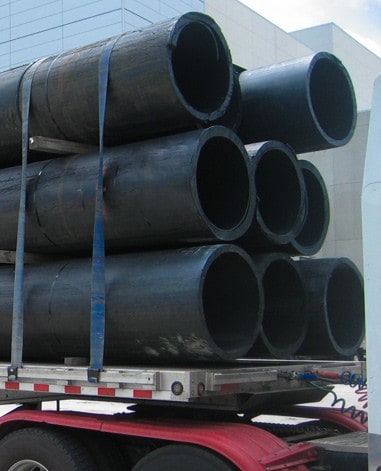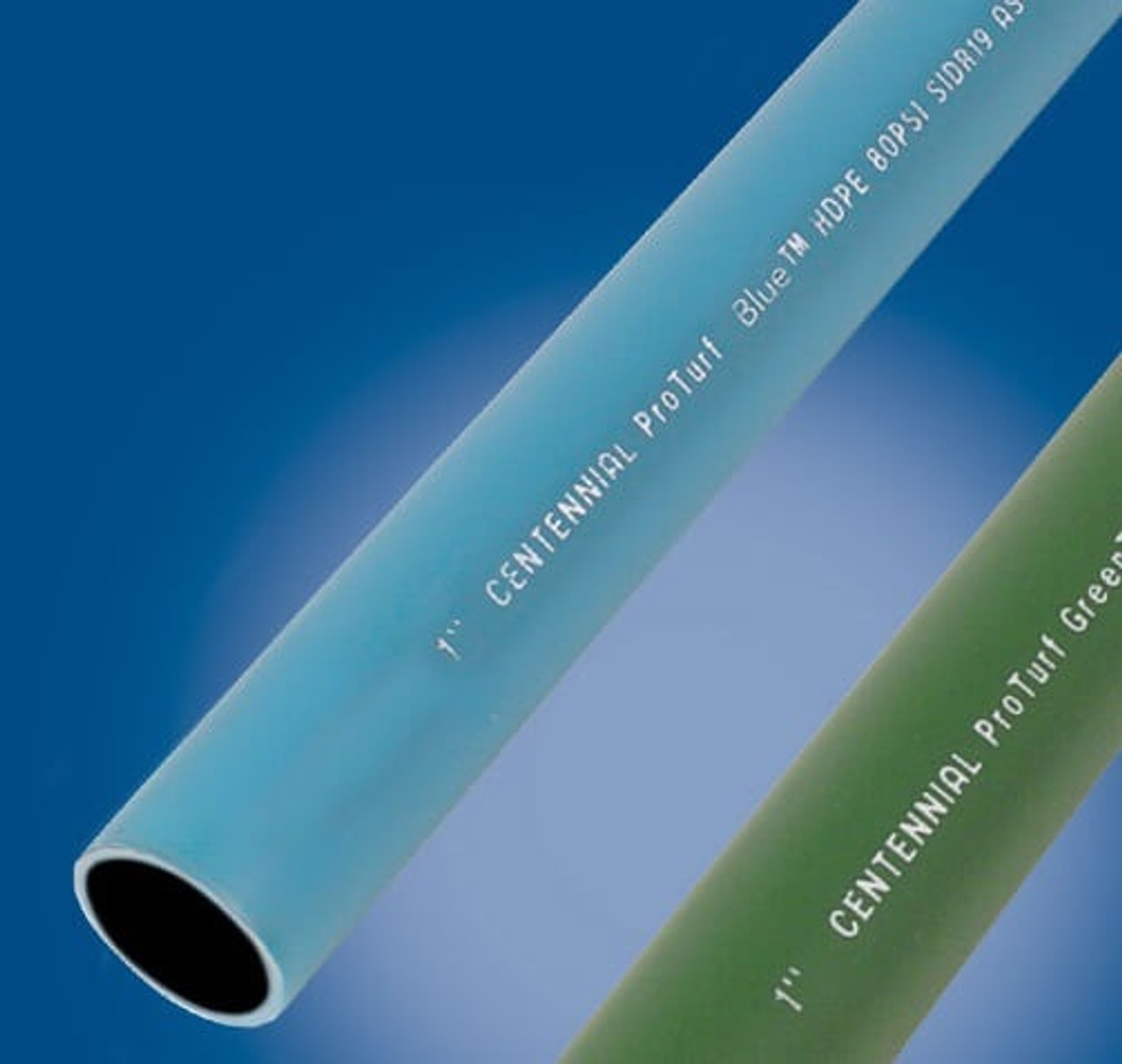A Comprehensive Guide to the Various Usages of HDPE Pipeline in Building And Construction and Market
HDPE pipes have actually become a critical part in modern construction and commercial applications. Their one-of-a-kind residential properties, such as resistance to corrosion and light-weight layout, make them ideal for a large range of uses. From water system systems to agricultural irrigation, HDPE pipes provide remedies that enhance performance and sustainability. Recognizing their varied applications is important for professionals looking to enhance framework. What specific benefits do these pipelines bring to each sector?
Supply Of Water and Distribution Systems
Water and distribution systems are crucial components of urban framework, usually depending on high-density polyethylene (HDPE) pipelines for their durability and effectiveness. These systems transportation drinkable water from treatment centers to customers, making sure access and safety and security. HDPE pipelines are favored for their resistance to rust, chemicals, and extreme temperatures, which improves their longevity and lowers upkeep costs. Additionally, their light-weight nature enables for easier installation and transportation, making them optimal for various metropolitan and country applications.
The versatility of HDPE pipes allows them to be installed in limited areas and around barriers, lessening the demand for comprehensive excavation (Midland TX HDPE Pipe Fittings in Stock). Moreover, their smooth indoor surface area decreases rubbing losses, improving water circulation rates. As cities remain to grow, the demand for trustworthy supply of water systems enhances, positioning HDPE pipes as a lasting option for modern-day framework jobs. Their tried and tested track document makes them a recommended selection among designers and city planners alike
Wastewater Management and Therapy
Efficient wastewater monitoring and treatment are essential for preserving public wellness and environmental top quality. HDPE pipelines play an essential role in this process because of their longevity, resistance to rust, and capability to endure extreme chemicals. These pipes are commonly made use of in numerous applications, consisting of sewer system, stormwater water drainage, and wastewater therapy centers. Their light-weight nature facilitates easier installment and transport, reducing labor expenses and time.
Additionally, HDPE pipelines have a smooth indoor surface that decreases friction loss, advertising effective circulation rates. They are also much less susceptible to leaks and failings compared to typical materials, guaranteeing that impurities are contained efficiently. Additionally, their adaptability permits for versatility in different dirt problems, making them suitable for varied environmental settings. As sectors progressively focus on sustainable practices, using HDPE pipes in wastewater monitoring systems aligns with objectives for reducing ecological effect and enhancing source healing.
Agricultural Irrigation Solutions
In agricultural settings, effective watering services are important for maximizing crop yields and taking care of water resources. HDPE (High-Density Polyethylene) pipes play a crucial duty in modern irrigation systems because of their resilience, flexibility, and resistance to rust. Their capacity to withstand high pressures makes them optimal for both surface area and subsurface watering applications, guaranteeing uniform water distribution throughout areas.
Farmers can utilize HDPE pipes in drip watering systems, which provide water straight to plant origins, reducing wastefulness and promoting healthy growth. Additionally, these pipes are lightweight and simple to set up, minimizing labor expenses and installment time. Their lengthy life-span and reduced upkeep needs even more improve their allure in farming methods.
HDPE pipes are environmentally pleasant, as they can be reused and do not seep unsafe chemicals right into the dirt. This makes them a lasting option for farmers intending to take read this on environmentally friendly agricultural methods while optimizing performance.
Industrial Applications and Processes
Flexibility is a hallmark of HDPE pipelines, making them crucial in numerous industrial applications and procedures. These pipelines are commonly utilized in chemical handling markets because of their outstanding resistance to a vast array of harsh compounds. HDPE's light-weight nature, incorporated with high tensile stamina, allows for easy installment and long-term efficiency popular pvc coupling atmospheres.
In the oil and gas field, HDPE pipes play a vital function in carrying hydrocarbons and gases, many thanks to their longevity and versatility - American Plastics HDPE Pipe Manufacturing. Additionally, they are used in mining procedures for the transportation of slurry and various other materials, where typical piping systems may fall short
Additionally, HDPE pipelines are progressively made use of in producing centers for supply of water lines and wastewater management. Their capability to hold up against extreme temperature levels and stress makes them suitable for a selection of industrial procedures. In general, HDPE pipelines add greatly to effectiveness and safety and security across diverse industrial applications.
Stormwater Management and Drain Solutions
Stormwater monitoring and drainage systems are vital parts in city infrastructure, developed to handle excess rains and lower flooding risks. High-density polyethylene (HDPE) pipes are progressively made use of in these systems as a result of their resilience, versatility, and resistance to rust. These pipes effectively deliver stormwater far from populated areas, lessening surface area drainage and protecting against waterlogging.
HDPE's light-weight nature facilitates easier installation, decreasing labor expenses and building time. Furthermore, its resistance to chemicals and environmental stressors warranties long life and dependability in numerous environments. Along with standard drain applications, HDPE pipes are likewise utilized in ingenious options such as eco-friendly facilities, that includes rain yards and absorptive sidewalks.

Frequently Asked Questions
Exactly How Does HDPE Pipeline Contrast to PVC Pipeline in Price?
In general, HDPE pipe tends to be much more pricey than PVC pipeline as a result of its boosted sturdiness and pvc p trap versatility. Nonetheless, lasting price factors to consider, such as upkeep and life-span, may prefer HDPE in details applications.

What Is the Life Expectancy of HDPE Water Lines Under Diverse Conditions?
HDPE pipelines typically have a lifespan of 50 to 100 years, relying on ecological conditions, installation practices, and use. Variables such as temperature level, soil type, and direct exposure to chemicals can greatly influence their resilience.
Can HDPE Pipes Be Recycled After Use?
Yes, HDPE pipelines can be recycled after use. The reusing procedure includes melting down the product, permitting it to be repurposed into new products, thereby advertising sustainability and minimizing environmental influence related to plastic waste.
Are There Any Kind Of Particular Installation Obstacles With HDPE Pipes?
Installment difficulties with HDPE pipelines consist of proper jointing strategies, guaranteeing ample trench problems, and managing thermal development. Additionally, experienced labor is called for to manage specific tools, which can make complex the installation process in various settings.

What Certifications Should I Try To Find When Purchasing HDPE Pipes?
When buying HDPE pipelines, one must seek certifications such as ASTM, AASHTO, and ISO, which verify quality and compliance with market requirements, ensuring durability and efficiency in different applications. - American Plastics HDPE Pipe Manufacturing